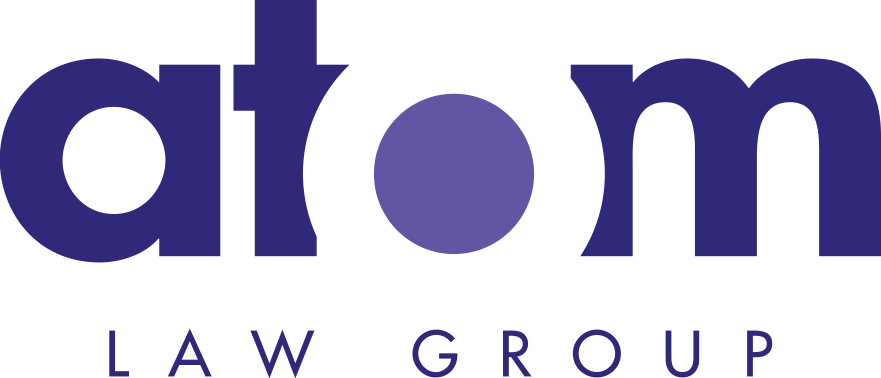Trademark Legal Assistance
In today's fast-paced market, your brand is not just a name; it's your identity, your reputation, and your promise to your customers. At Atom Law Group, we provide comprehensive trademark services to safeguard your brand and fuel your business growth. Our expert team is dedicated to delivering personalized, effective solutions in all aspects of trademark law.
Benefits of Applying for a Trademark
- Legal protection: A trademark registration gives you legal protection for your brand and can prevent others from using similar marks that may cause confusion among consumers.
- Exclusive rights: Once your trademark is registered, you have exclusive rights to use it within the classes of goods and services that you have registered it under.
- Increased brand value: A registered trademark can increase the value of your brand by making it more recognizable and trustworthy to consumers.
- Licensing and franchising opportunities: Having a registered trademark can make it easier to license or franchise your business.
- Legal evidence: A registered trademark can be used as evidence in legal proceedings, such as trademark infringement lawsuits.
- National protection: A registered trademark gives you protection throughout the whole country, and not just in the state you are based in.
- Easier and stronger enforcement: Having a registered trademark makes it easier to enforce your rights and can strengthen your position if you need to take legal action against an infringer.
Dangers of NOT Applying for a Trademark
- Loss of exclusive rights: Without a registered trademark, you do not have exclusive rights to use your brand name and may be forced to rebrand if another business begins using a similar name.
- Confusion among consumers: Without a registered trademark, others may use similar marks that can cause confusion among consumers, leading to loss of business.
- Limited legal protection: Without a registered trademark, your legal protection may be limited, and it can be more difficult and expensive to enforce your rights in court.
- Loss of brand value: A registered trademark can increase the value of your brand, but without one, your brand may be perceived as less trustworthy and recognizable.
- Difficulty in enforcing rights: Without a registered trademark, it can be difficult and costly to enforce your rights against infringing parties.
- Limited ability to license or franchise: Without a registered trademark, it can be difficult to license or franchise your business, as it may be difficult to prove ownership of the brand.
- Limited geographical protection: Without a registered trademark, your brand might only be protected in the specific area or state you are doing business in.
Choosing the Right Trademark in the US
Choosing the right trademark to register is an important decision that can impact the success of your business. Some considerations to take into account when choosing a trademark include:
It's important to note that these considerations are not exhaustive, and the final decision should be made in consultation with legal and trademark professionals to ensure that you are choosing a trademark that is legally protectable, relevant, and aligns with your business goals.
Registration of Trademarks in the US
The process of registering a trademark with the United States Patent and Trademark Office (USPTO) can be complex and time-consuming, but generally, the following are the steps involved:
It's important to note that the process of trademark registration can take several months or even years, and it's recommended to seek legal advice when filing the application to ensure that the trademark is legally protectable and that the application is properly prepared.
Office Actions
An office action is a letter or document issued by the United States Patent and Trademark Office (USPTO) during the trademark registration process that states any issues or concerns that the examining attorney has found with the trademark application. The office action will typically list the reasons why the trademark is not in compliance with the requirements of the trademark law and will set a deadline for the applicant to respond.
Examples of reasons that may be cited in an office action include:
- The trademark is similar to another existing trademark
- The trademark is considered descriptive or generic
- The trademark is not being used in connection with the goods or services specified in the application
- The specimen provided does not show the trademark being used in the manner specified in the application.
The benefits of using an attorney when responding to an office action include:
Trademark Licensing
A trademark licensing agreement is a legal agreement between the owner of a trademark (the licensor) and another party (the licensee) that allows the licensee to use the trademark in exchange for some form of compensation. The specific clauses that should be included in a trademark licensing agreement may vary depending on the nature of the trademark and the parties involved, but generally, the following clauses are considered important:
It's important to note that these clauses are not exhaustive, and the agreement should be tailored to the specific needs and requirements of the parties involved. It's recommended to seek legal advice when drafting a trademark licensing agreement to ensure that it is legally binding and enforceable and that it complies with all trademark laws.
